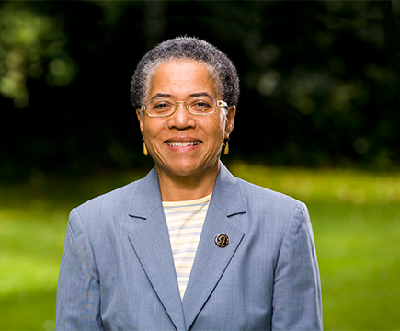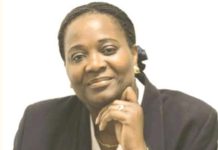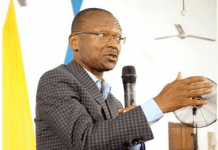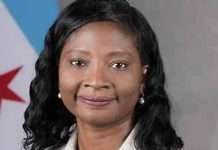Professor Dame Elizabeth Nneka Anionwu is a British-born nurse, health expert, counsellor, lecturer and medical professor of Irish and Nigerian descent. A highly celebrated and internationally renowned emeritus professor of nursing, she is widely known for her contributions in the opening of the first sickle cell and thalassemia counselling centre in the UK in 1979. This ground-breaking sickle cell service in London has led to babies nationally being screened at birth in the UK. Also, her relentless efforts to ensure that people affected by sickle cell disease and thalassemia get the support they need has indeed touched many lives.
Professor Anionwu has held senior executive positions in various organisations and received many awards and recognitions for her outstanding achievements and contributions to nursing practice in the UK. One of her notable recognitions was the award of Dame Commander of the Order of the British Empire, conferred on her by Queen Elizabeth II in 2017 for her services and contributions to nursing practice and the establishment of Mary Seacole Statue Appeal. She is also a Fellow of the Queen’s Nursing Institute (FQNI).

Throughout the course of her career, she has authored several books, as well as articles, published in many journals. She co-authored “The Politics of Sickle Cell & Thalassaemia” (2001) with Dr Karl Atkin. She also wrote “A Short History of Mary Seacole: a Resource for Nurse and Students” (2005). Her astonishing life’s story was detailed in her memoir titled “Mixed Blessing from a Cambridge Union”, published in 2016.
Family and background
Elizabeth Anionwu rose from a challenging childhood to the highest echelon of the nursing profession, validating the saying of C.S Lewis that adversity prepares a person for an extraordinary destiny. No one would have imagined that her life would turn out so well with her humble background and the challenges she faced early in life. The rejection and stigma from her family and the society because of her skin colour and the stereotyping for being mixed race in a society which routinely undervalued black people’s ability constituted a major challenge for her while while growing up. But she chose to make a mark with her life against all odds.
Prof. Anionwu was born Elizabeth Mary Furlong in Birmingham, UK on July 2, 1947. Her parents Mary Furlong, from a middle class Irish family and Lawrence Odiatu Victor Anionwu, a Nigerian, met as students at Cambridge but never married. Her mother, Mary Furlong was very brilliant and excelled academically. She won a scholarship to study Classics at Cambridge University and she was in her second year when she became pregnant by Lawrence Anionwu who was a Law student at Trinity Hall, Cambridge, at that time.
Mary Furlong’s devout catholic family were disconcerted by the news of her pregnancy. This devastation further intensified at the birth of the mixed race, “illegitimate” child. Elizabeth mother’s hopes of a promising academic career was dashed as she had to quit school and find a job, so she could provide a home for her daughter and herself. The rejection by her family further put intense strain on her relationship with Elizabeth’s father and both soon parted ways.
Elizabeth spent nine of her early years at the Nazareth House convent in Birmingham where she had a difficult and an unstable upbringing. As a child, she was constantly on the move and didn’t have the opportunity to settle and experience the care and love of family where she could build up her confidence.
Meeting her father
Elizabeth grew up not knowing her father. Her African identity was a missing part of her that remained elusive throughout her childhood and teenage years until few weeks before her 25th birthday. She had written to her mother three months earlier asking for information about her father but she was advised not to search for him. However, she was told that he was from Onitsha in south-eastern Nigeria and that he had returned to Africa after qualifying as a barrister and married a Nigerian woman.
Unable to give up the idea of ever knowing her father, she asked a friend who taught law at the university for advice. As fate would have it, the friend called two days later to inform her he had found her father, who coincidentally, was living in London at that time. She called him on the phone immediately, and consequently, met him the next day.
Meeting her father and getting to know her Nigerian roots was a major landmark in Elizabeth Anionwu’s life. After travelling to Nigeria for the first time, she grew to love the warmth and ease of her Nigerian family. They accepted her as she was and encouraged her to take her father’s name which she did with her mother’s approval.
Career
It is a beautiful thing when career and passion come together. Just like every nurse drawn into the noble profession because of their desire to care, to serve and help others, Elizabeth Anionwu’s passion and motivation to become a nurse was inspired by the care she received from a nun who cared for her eczema in a sensitive and expert manner when she was aged four. At the age of 16, she started to work for the National Health Service as a school nurse assistant in Wolverhampton.
Her father also played a major role in shaping her career path. He was a barrister and former ambassador of Nigeria to Italy. His love for education made him to encourage her to become a tutor. She applied for a course and got a scholarship. Later on, she travelled to the United States to study counselling for sickle cell and thalassemia, because centres and courses were not available in the UK at that time.
In 1979 Elizabeth Anionwu worked with Dr Milica Brozovic to create the first UK Sickle Cell and Thalassemia counselling and screening centre in Brent. She was the first ever UK sickle cell/thalassaemia nurse counsellor and appointed the Head of the Centre from 1979 to 1990.
In 1988 Elizabeth Anionwu was awarded a PhD from the Institute of Education, University College London (UCL). In 1990, with the help of Professor Marcus Pembrey, she taught a course at the University College, London, that was for NHS staff members who worked with communities affected or were at risk of sickle cell disease and cystic fibrosis. She advanced academically to the position of a senior lecturer in community genetic counselling at the Institute of Child Health, University College London. In 1997, Elizabeth Anionwu was appointed as Dean of the School of Adult Nursing and Professor of Nursing at the University of West London. In 1999, she established the Mary Seacole Centre for Nursing Practice and was Head of the institution until her retirement in 2007. The university then honoured her with the award of Emeritus Professor of Nursing.
Awards and recognitions
Prof. Anionwu was honoured with a Damehood (DBE) in the 2017 Queen’s New Year’s Honours List for her services to nursing and her role in the establishment of Mary Seacole Statue Appeal. The Queen’s Nursing Institute awarded her a Fellowship (FQNI) in October 2017. In 2001 she was awarded a Commander of the British Empire (CBE) for services to nursing. In 2004, she was presented with the Royal College of Nursing Fellowship (FRCN) for her work in the development of nurse-led sickle cell and thalassaemia counselling services and education and leadership in transcultural nursing. In 2010, she was inducted into the Nursing Times Nursing Hall of Fame for services to the Development of nurse-led services and in 2016 was presented with the Chief Nursing Officers’ Award for Lifetime Achievement at the ‘Nursing Times’ Awards Ceremony.











